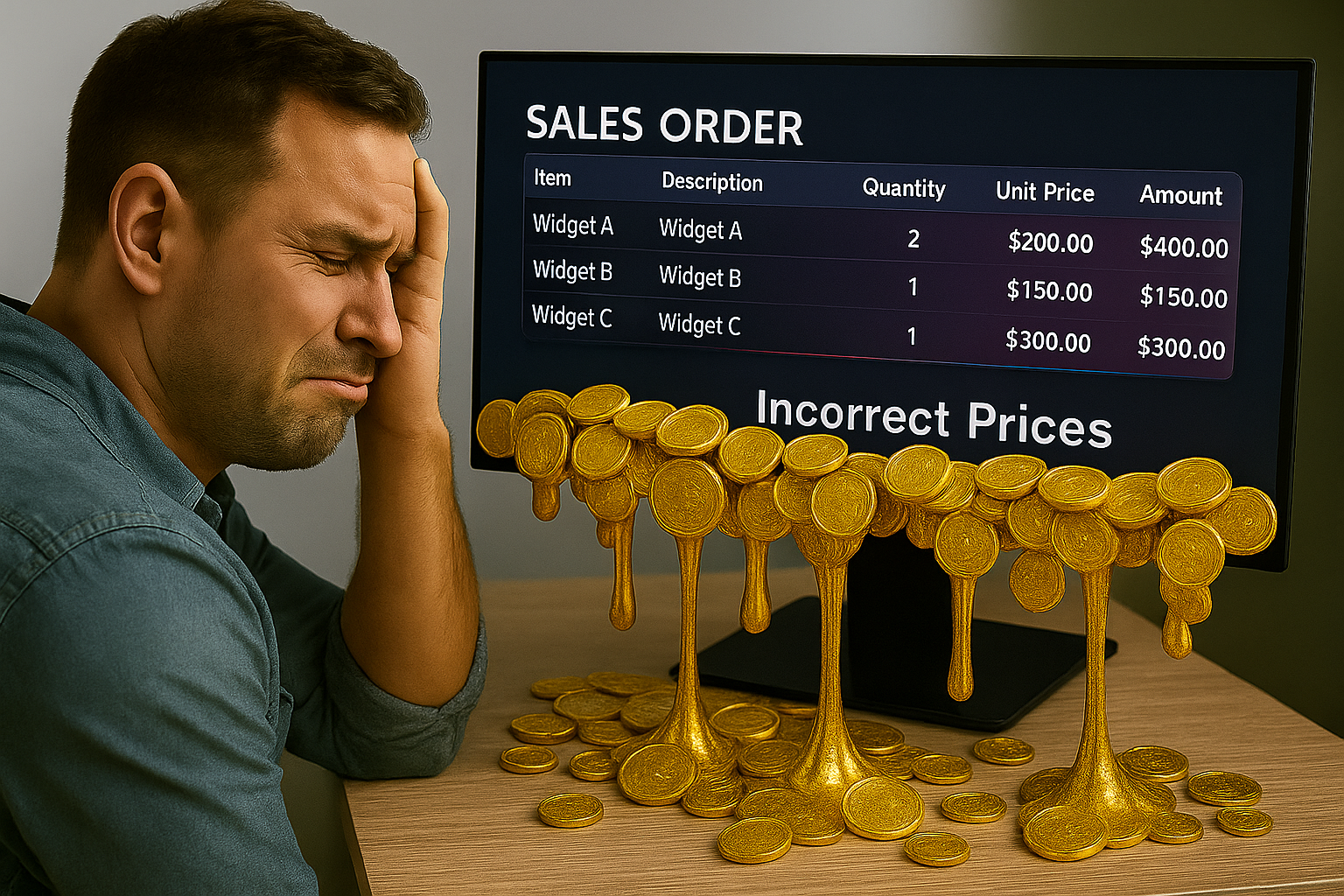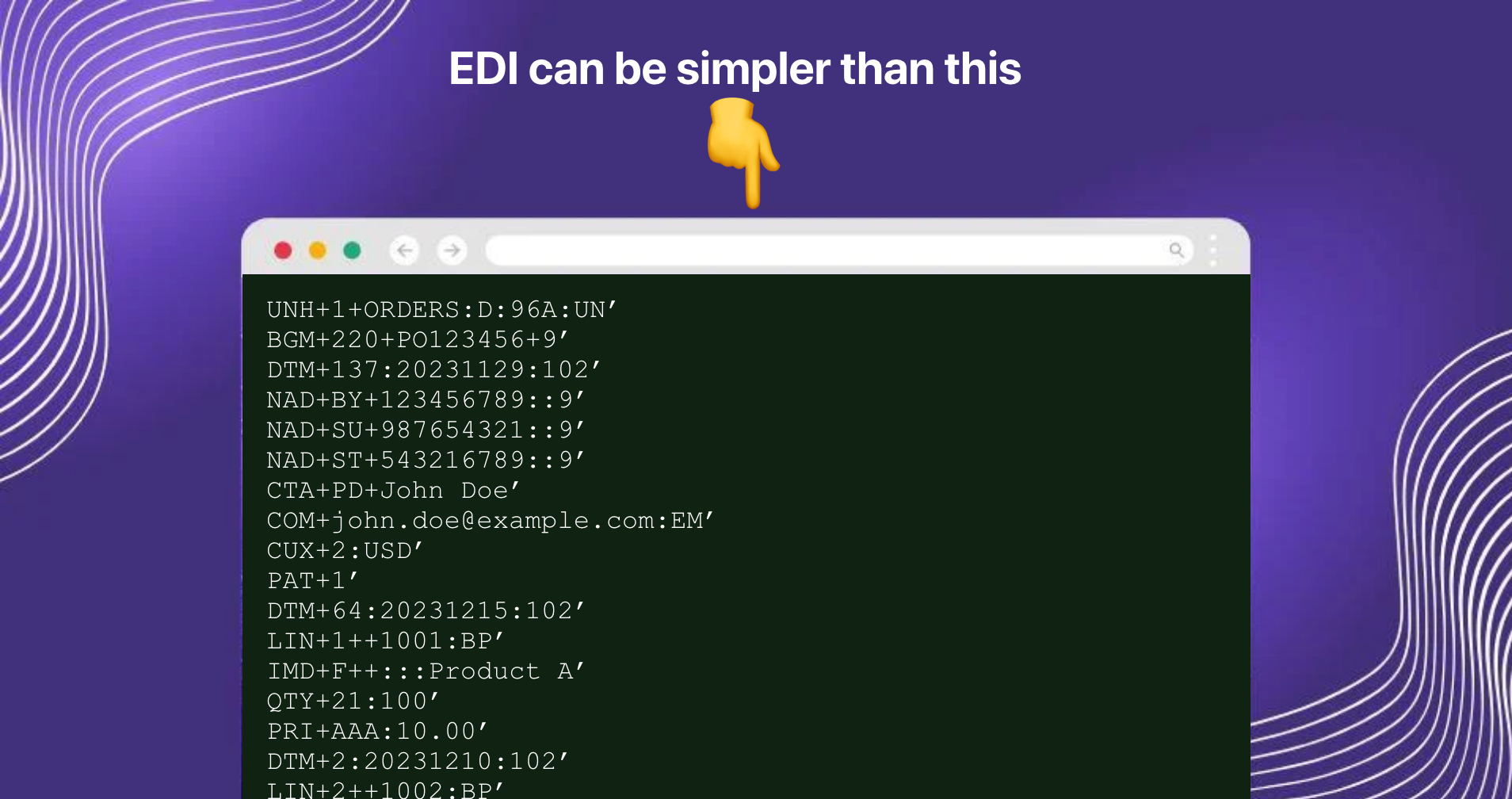What is B2B? Everything you need to know about Business-to-Business

B2B… what comes to mind when you see that abbreviation? And no, it’s not another R&B boys’ group from the 2000s. We already have B2K and our humble take is that those kinds of B2’s are best left in the 2000s together with tape cassettes, oversized shirts, and blockbuster cards.
Does this business model excite you? If yes, let’s look at everything there is to learn about it from the basics to in-depth concepts such as the different types of B2B, the difference between B2B and B2C as well as some practical examples of B2B marketing. And since close to 50% of B2B businesses conduct their marketing in-house, we’ll also tell you how to stay ahead of your competition without breaking the bank.
We’ll delve deeper into its definition a little later. B2B businesses are not so different from the much-hyped consumer-based startups – B2Bs have multiple clear-cut advantages that set them apart from other business models. If you sell products or services to other businesses, you’re a B2B!
Ready to jump in? Let’s get the basics out of the way!
Table of Contents
What is B2B?
B2B means “Business-to-Business”. It encompasses all businesses that create and sell products and services for other businesses such as manufacturers for wholesalers and wholesalers for retailers. It describes transactions for orders between businesses – B2C on the other hand, allows businesses to sell directly to consumers for personal use.
When B2B orders are executed online, manufacturers, wholesalers, and distributors benefit from purchasing efficiency. A 2020/2021 B2B market analysis survey indicated that about 61% of the B2B market has shifted online, meaning wholesalers, manufacturers and distributors are now generating more business online – thanks to the B2B ecommerce concept. The ecommerce space has evolved, allowing the conventional B2C businesses to incorporate the B2B aspect into their operations, giving rise to the so-called B2C2B. Vice versa (B2B2C) has also become quite common today.
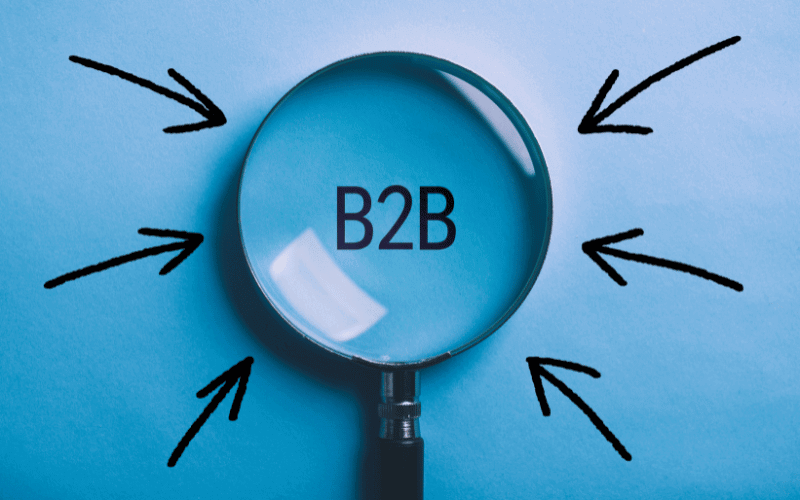
The B2B ecommerce market, now embracing 61% of businesses online, is revolutionizing efficiency and transaction models for manufacturers, wholesalers, and distributors.
B2B can be referred to in several ways, all of which signify the business-to-business model:
- Business-to-Business
- B-to-B
- B2B Commerce
- B2B Sales
- Business-to-Business Transactions
- Business-to-Business Market
- B2B Trading
- B2B Sector
- Commercial Trading (in a business context)
- Interbusiness Relations
- Corporate Sales
- Industrial Trade (when referring to transactions between industrial companies)
- Business-to-Business Networking
- Wholesale Trading (in the context of wholesaler to retailer relationships)
- Corporate Commerce
Each of these terms emphasizes the aspect of transactions or interactions occurring directly between businesses, rather than between businesses and individual consumers.
Types of B2B
B2B can take many forms. Below are some common types of business-to-business ecommerce.
1. B2B2C
Business-to-business-to-consumer ecommerce can take several forms, however essentially, it involves simultaneously transacting with other businesses as well as consumers. In other words, it eliminates the need for a middleman usually linking businesses to consumers; instead, it enhances the direct interaction of businesses with customers.
Alternatively known as business-to-everyone (B2E), business-to-x (B2X), and business-to-many (B2M), B2B2C wholesalers and manufacturers serve the final consumer either directly or through a B2B partner. In a B2B2C model, business transactions take place entirely online usually through ecommerce platforms, apps, and storefronts.
While from the face of it the B2B2C concept might sound like a complex business model, most consumers interact with it daily. Uber Eats is a perfect example – while it sells its services to restaurants, it also directly delivers food to consumers.
2. Wholesale
Wholesale is a popular form of B2B. Wholesale businesses normally sell the bulk of their products at reduced rates to retailers. The wholesale business is usually a manufacturer or distributor. This is how the wholesale business works – it implies selling goods to other businesses in larger quantities.
A typical wholesale business could be one selling raw materials to a manufacturer. Turis, for example, is a wholesale B2B platform as it is designed to help businesses to build ecommerce stores to improve the ordering experience for their retail clients. Because they really prefer to order online!
Digital wholesale and B2B ecommerce could mean the same thing because essentially, they both involve bulk selling to other businesses online.
3. Manufacturers
Manufacturers of bulk goods from raw materials sell their products to other manufacturers or wholesalers. An example of a B2B manufacturer could be in the auto space, where manufacturers make parts and sell them to other manufacturers to assemble and sell complete cars to their wholesale or retail customers.
B2B buyers are nowadays looking to encounter the B2C buying experience with both manufacturers and wholesalers taking note of the evolving online business environment. And with the B2B market expected to soar to about $20.9 trillion by 2027, businesses transacting online are bound to realize a steady rise both in revenue and consumer uptake.
4. Distributors
Manufacturers work closely with distributors to help bring their products to the consumers and end-users. Distributors also play a crucial role in boosting products’ visibility as they engage in a lot of marketing activities.
Most manufacturers partner with distributors to boost revenues with the online arena providing an even greater opportunity to reach their target wholesalers and consumers. B2B distributors are keen on increasing efficiency while shortening lead time from the point of sale to delivery.
Why a B2B platform is a game-changer for your eCommerce business
So regardless of your industry, here’s why you might want to be a part of this new wave of doing business online. But what is eCommerce, you can read it here. We also collected the best eCommerce platforms in one article.
The B2B space has seen massive growth in recent years. In its recent study, Forrester Research noted: “B2B eCommerce growth shows no sign of slowing down. In 2018, the United States hit $1 trillion in online B2B sales, up 17% from $969 billion in 2017. These numbers will continue to climb, reaching $1.8 trillion by 2023.”

Benefits of a B2B eCommerce platform
24/7 availability anywhere, anytime
Gone are the days when B2B customers requested physical sales visits, long phone calls with their suppliers, and numerous emails to restock their shelves.
Instead, the B2B customers of today want to order exactly when it’s convenient for them. They are demanding 24/7 availability and access. And by allowing your customers to order your products via a B2B platform, you are ensuring just that.
B2B eCommerce knows no boundaries – whether you’re US-based or in Europe, your customers can now order your products at any time from anywhere. That’s practical for both your customers and yourself.
Provide client-centric support
Listen – “74% of business-to-business customers and 63% of consumers will pay more for a great experience,” this is according to a study by Salesforce. The truth is that, unlike their predecessors, today’s businesses and consumers are more informed and less loyal, which is why conventional incentives like discounts no longer move them as much.
And providing good service with a big smile can’t cut it either. The study found that close to 90% of customers would rather be treated like a person and not just a number if you’re going to win their business.
But of course, you’re familiar with the idea of ‘putting the customer first. With the help of B2B platforms, you can personalize interactions and customer experiences in special ways. You could do this by assisting your customers with the required knowledge and support about their potential purchases to the point of their first buy, as well as each moment of the journey in between.
Streamline order fulfilment with cloud-based B2B platforms
Online selling boosts order fulfilment for B2B businesses, and here’s how: B2B tools offer a contemporary cloud-based ecommerce arena for an end-to-end ordering process. With built-in order management functionalities, businesses can process and track orders using a method called the Modern Order Management Systems (OMS).
Now, OMS presents the entire supply chain process as an integrated ecosystem used by manufacturers, wholesalers, and distributors to automate customer orders from the start to the satisfaction level.
For instance, Turis allows brands, wholesalers, and distributors to create customized ecommerce stores that allow for inventory and order management, customer support, plus a range of other supply chain functions under a single platform.
Make the most of your business data
Gaining access to a range of data-driven business tools for CRM, procurement, ERP, and more gives you a real-time bird’s eye view of your company. Using these tools, not only is arriving at important business decisions made easier, but B2B platforms also ensure that all your business moves are backed by verifiable, accurate, and informative data. According to an article from the strategic platform provider, DecideAct, companies who are able to efficiently track progress and developments through relevant data are more likely to gain competitive advantages.
For example, the CRM section could show you whether your content marketing strategy is working optimally; the ERP will pick out any areas of wastage, while the shipping wing could reveal order fulfilment inefficiencies. In essence, as Turis likes to put it, a B2B platform is your one-stop-shop for selling professionally and error-free.
There is of course more to a B2B platform than these four fundamental trump cards. But first, you will need to develop one, that you can read more as well.
As promised at the start, below’s how to navigate cut-throat competition in the B2B space and stand out from the crowd.
B2B Marketing: How to Stand Out from Your Competition
1. Content marketing: Know your customers – and create valuable content that benefits them
Content marketing is crucial because it helps answer your customers’ questions. But don’t just create content that showcases your general understanding of their fields or pain points – you want to delve much deeper and resonate with whatever it is they seek answers for.
As per HubSpot’s State of Inbound report, 53% of marketers are now prioritizing content marketing as a way of generating new business. When creating content, avoid sounding aggressively sales; instead, you want to clearly demonstrate how your product or service solves their problems.

So what type of content delivers results both for you and your customers: create content that actually benefits your customers and their customers – in so doing, you won’t just end up building trust with your potential customers but you’ll also be showing them that you genuinely care about them as humans.
Effective content marketing extends beyond just answering customer queries; it deeply explores their core needs, building trust and showing genuine care without aggressive sales tactics.
2. Make it personal – and be easy to reach
Have you ever visited an e-store and liked their offerings only to spend five minutes trying to find their contact information? Well, if you haven’t, count your lucky stars because most buyers are instantly turned off by the super-hard-to-reach wholesalers and distributors. The point is – your customers need not sweat it when it comes to reaching you. Set up clear contact information including contact forms, email, chat sections, phone numbers, etc.
Have a dedicated support team on standby ready to offer timely solutions to the potential, new, and existing customers. Additionally, understand that a detailed and genuinely helpful FAQ section is nowadays a must-have and not a nice-to-have.
3. Make it easy
You’ve worked hard to bring your wholesale or manufacturing business online and most certainly, the last thing you want is to sabotage your own company. If that’s the case, then you might want to avoid making it difficult for other businesses to buy from you! But how do you do that? You might ask. Simple: cut out any complexities, be responsive and accessible, and drive the sales process forward, professionally.
Other things to consider include making your webshop navigation easy and fast while keeping it intuitive at all times.
4. Reward loyalty
Keeping your business afloat requires that you focus on attracting new business while retaining your existing clients. And what better way to do that than having a reward program for your clients? For a while now, loyalty programs have proven viable for customer retention as they regularly augment brand engagement. Rewards can be in the form of gifts, discounts, and points and they help improve customer experience by establishing an emotional connection between your business and its clients.
Every time your customer gives you repeat business or subscription, these benefits further cement your brand’s trust and as a future-looking wholesaler or manufacturer, you shouldn’t take this for granted. Look: we’re not asking you to blow away a chunk of your sales to please your customers, that’ll be sending you out of business, but perhaps you might agree with us that it isn’t the worst of ideas to spend some money to keep making some.
5. Integrate eCommerce with other sales channels
Ecommerce is one of the fastest-growing sectors – in America, an average household spends about $5,200 annually online, denoting a 50% increase from just five years ago. And the same trend is seen in B2B eCommerce as well. As an ecommerce store, you’re probably positioning your products and service for the ballooning global ecommerce spending by establishing multiple sales channels, and that’s fabulous! However, with more separate stores comes the challenge of effective management. So, what if there was a way to get rid of that hurdle and let you concentrate on pursuing your fair share of the big cake?
Well, in fact, there is a way to manage all your sales channels under a single ecommerce platform. Turis is one such tool that allows you to integrate multiple sales channels including Shopify, Amazon, WooCommerce, and many more. Your digital presence is an extension of your business so here’s the deal: don’t think of the two as separate – use one to benefit the other.
Why you should use B2B eCommerce integrations
So why should you integrate your B2B eCommerce system with other software you use for your business? The answer is that integrations minimize time spent on manual, tedious, and redundant tasks. No more time wasted having to update product and customer information in multiple systems, checking multiple times that everything is correct. Instead, every update is synced to all integrated software.
No more manual inputting of data (order lines, for example) into accounting or ERP systems. Instead, you can transfer all order data from your B2B webshop at the click of a button.
Integrating your B2B eCommerce software also means less risk of order errors. So even more time was saved, not having to correct these errors and the results thereof.
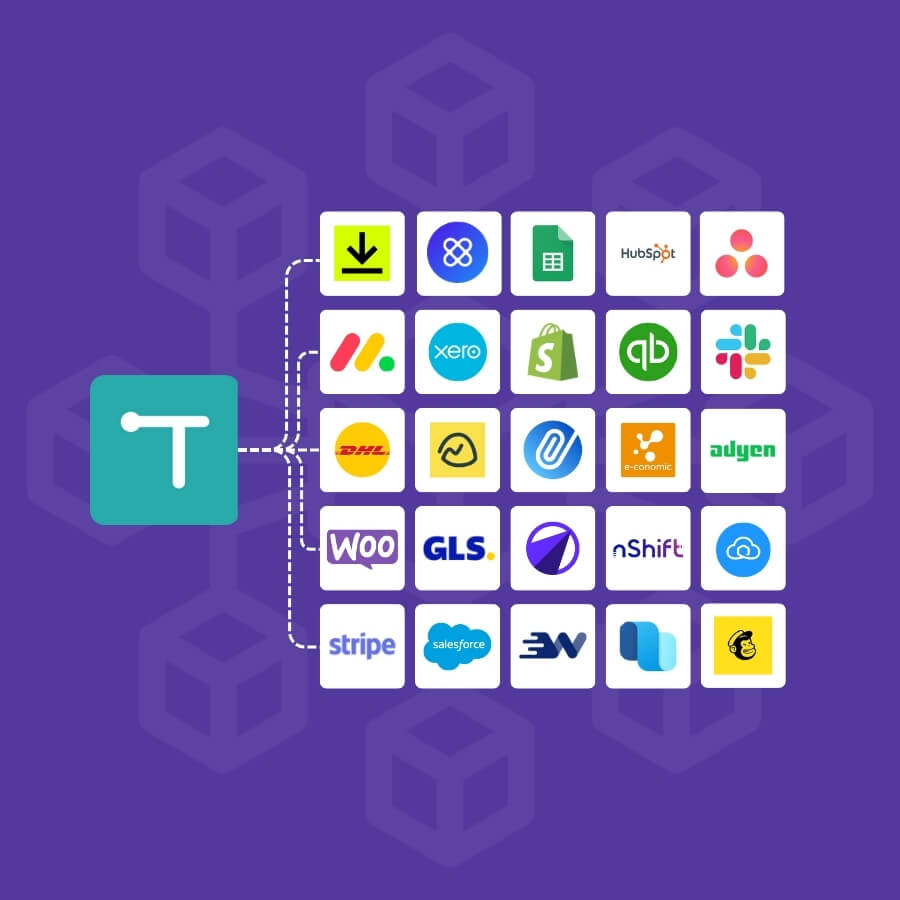
B2B eCommerce platform success story: ORTLIEB
ORTLIEB, a leading provider of waterproof bags and outdoor gear, turned to Turis to streamline their wholesale operations. They needed a B2B solution that could handle complex B2B orders and provide clear, straightforward management tools and an intuitive interface for their buyers.
Implementation and Results: After implementing Turis, ORTLIEB saw significant improvements in B2B order management efficiency and customer satisfaction. Being able to process orders quickly and customize pricing for different clients improved the buying experience and boosted sales.

The most common B2B eCommerce integrations
The potentials of B2B eCommerce integrations are practically limitless. There are, however, some integrations that are more common than others.
Below, we’ve listed the 3 types of integrations that our customers typically request. The 3 integrations types are:
- Accounting systems
- B2C webshop
- Shipping software
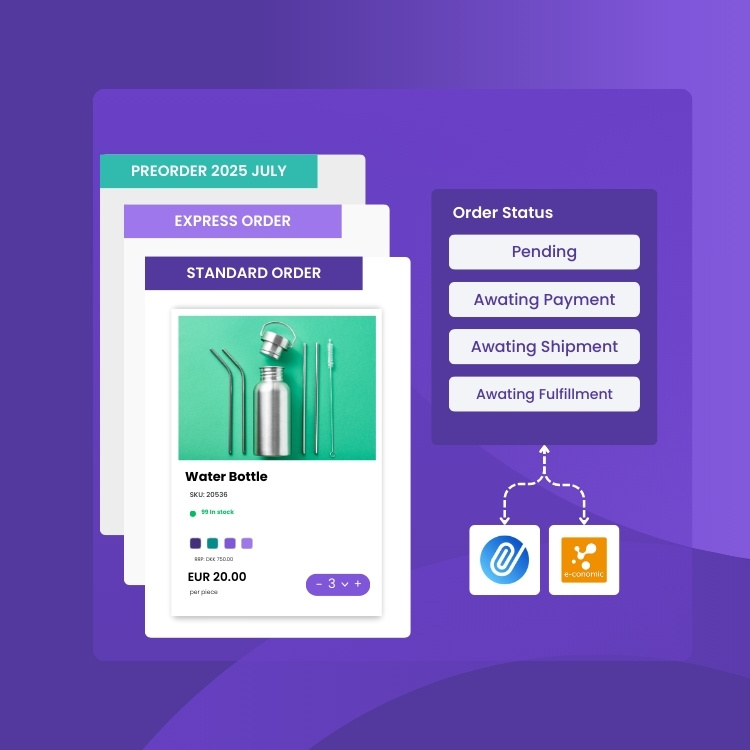
Accounting system integrations
Integrating the company B2B eCommerce software with the company accounting system is what we most frequently see at Turis.
Without the integration, employees would have to manually input all orders (customer, order lines, prices, quantities payment terms, etc.) into the accounting system. For many companies, this amounts to several hours of work – every single day!
Instead, using an integration, all of this information is automatically transferred from the B2B eCommerce platform. All an employee would have to do is skim through the order to make sure everything is correct. This takes minutes compared to the hours it takes to create an order from scratch.
B2C shop integrations
Many brands today sell their product in both B2B and B2C. Typically, we see that our customers use something like WooCommerce or Shopify for their B2C sales and integrate either of these with their B2B eCommerce shop.
One of the main benefits of integrating your B2C webshop and B2B webshop is that you won’t have to do product updates in both systems. If you change a price, product description, etc., the change will automatically get transferred to the other system as well.
Another benefit is that you can integrate the stock levels between the two systems. This way, you won’t have to disappoint any customers (B2C or B2B), letting them order something that had just sold out due to your other webshop.
Shipping software integrations
Last but not least, integrations between B2B eCommerce software and shipping software are also quite common. Integrating your B2B eCommerce with your shipping software is a great way to reduce the risk of order errors caused by mistyping.
But even better, such integrations help speed up the shipping process by eliminating manual tasks and potential bottlenecks. Something sure to result in satisfied customers.
This will also eliminate the hidden cost associated with overstocks, out-of-stocks, and preventable returns. these hidden costs are equivalent to nearly 12% of sales for the typical business.
The difference between B2B and B2C eCommerce platform in online sales
There is a huge difference between selling to a business and a consumer. That is why it might not be such a great idea to sell to other businesses using your online B2C store. B2B platforms come with loads of complexities compared to the B2C ones.
And even cost-wise, B2B solutions attract much higher costs. This cost implication has resulted in a slowed penetration by the B2B solutions in comparison with the B2C ones. But the slower implementation of business solutions for companies selling to other companies has recently gained a major boost, thanks to the entry of modern, more affordable, easy to use B2B platforms. These tools have showcased the vital benefits of taking wholesale businesses online, including error elimination, better customer retention, and boosted sales volumes.
The end
That’s it. A relatively short introduction to the concepts of B2B and online platforms. If you have any questions about the blog post you are more than welcome to contact us.
If you are interested in learning more specifically about B2B platforms, we recommend you to read some of our many other blog posts on the topic or see what our B2B ordering platform has to offer.
You can also get in touch with us, so we can tell you more…

